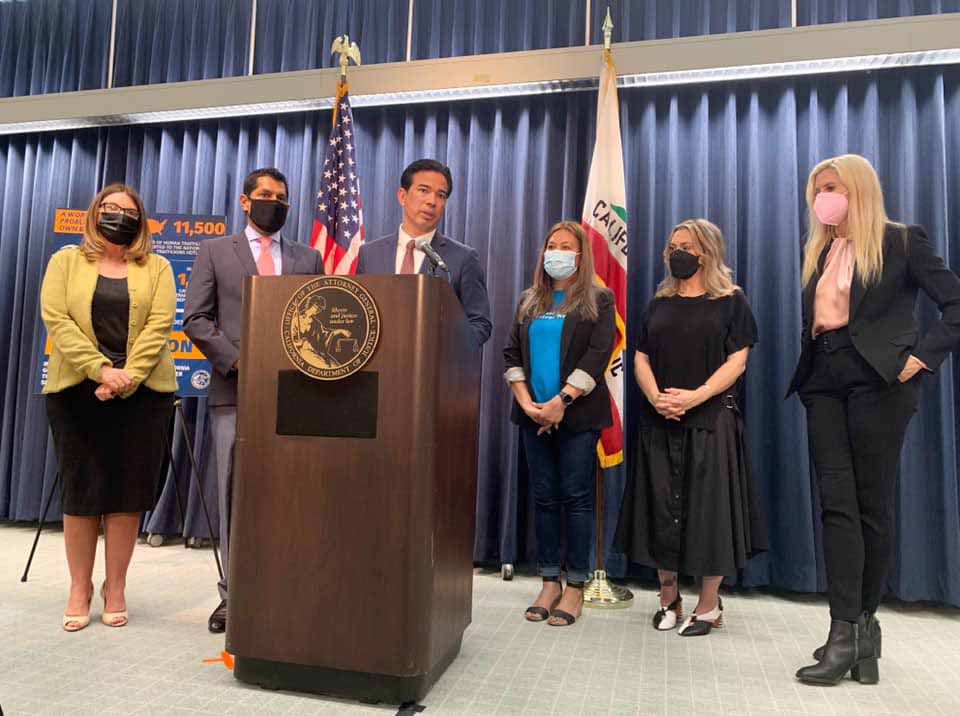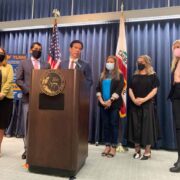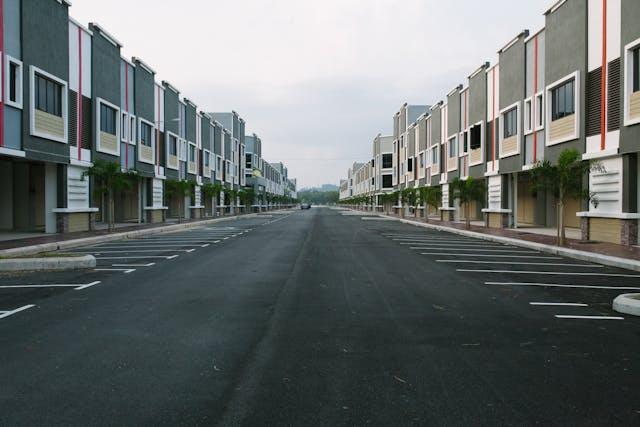
FILIPINO American California Attorney General Rob Bonta has launched new regional Human Trafficking and Sexual Predator Apprehension Teams (HT/SPAT) to address the epidemic of human trafficking in California, which was exacerbated by the state’s lockdown in response to the COVID-19 pandemic.
The teams — one covering Northern California and another covering Southern California — are in addition to the California Department of Justice’s existing work as a lead agency in the San Diego Human Trafficking Task Force.
“Plain and simple: Human trafficking is a modern-day form of slavery. Whether it’s forced labor or commercial sexual exploitation of children, there is no place for these kinds of crimes in California or anywhere,” Bonta said in a press release on Friday, June 18.
“Unfortunately, the pandemic has only served to exacerbate many of the underlying risks that lead to human trafficking in our state. We all have to work together across every level of government and society to help bring human trafficking to an end. That’s why I’m proud to formally launch our human trafficking teams at the California Department of Justice,” he added.
Bonta also issued a bulletin to local authorities to provide guidance on key techniques meant to help reduce harm in law enforcement interactions with sexually exploited youth.
Additionally, he highlighted new funds included in the proposed state budget aimed at fighting the effects of the pandemic on human trafficking and directly supporting survivors across California through $30 million in new grants over the next three years. The new proposed funds are in addition to $10 million per year in grants already included in the budget.
“It has been more than 150 years since slavery was abolished and yet modern-day slavery still exists in our backyard,” said Assemblymember Miguel Santiago.
He added, “It’s our responsibility to do everything in our power to abolish this horrid crime and help survivors recover. A historic state investment of $60 million over the next three years coupled with the Attorney General’s statewide efforts will provide survivors much needed services such as housing, food, legal representation, and emergency response that could prove life-saving. This is only the start and it will take a village to eradicate one of the biggest human rights challenges of our time.”
According to the National Human Trafficking Hotline, there were more than 1,500 human trafficking cases reported in California in 2019 — more than any other state in the nation.
The HT/SPAT program will use a victim-centered approach to aggressively investigate and identify forced labor and sexual exploitation for profit or gain by human traffickers and sexual predators.
It will also work to monitor and ensure compliance with California’s laws among registered sex offenders, largely focusing on those who have been identified as “Well Above Average Risk Offenders” in the California Sex Offender Registry.
Bonta encouraged law enforcement partners in the state to reach out to the new program.
“No one agency can do it all alone — and we need more than arrests to have a real, lasting impact on survivors, particularly children. That’s what makes these new grants in the proposed budget and our law enforcement bulletin so important,” he said.
“It will take hard work, patience, and understanding to secure justice and, ultimately, to bring healing. I’m confident that with the tools being shared today, together we can help make a difference for our people and for our state,” the attorney general added. (AJPress)






